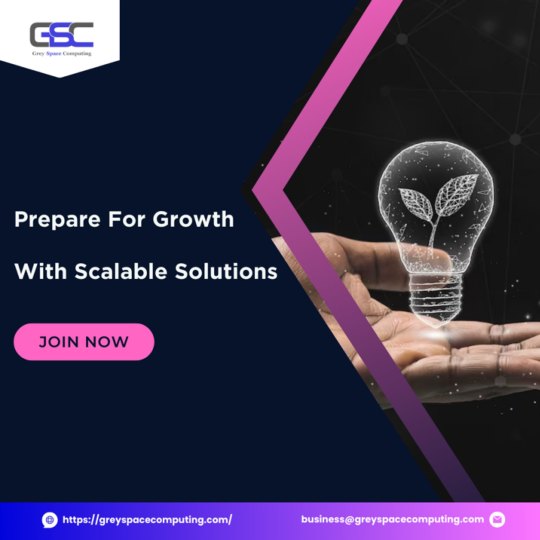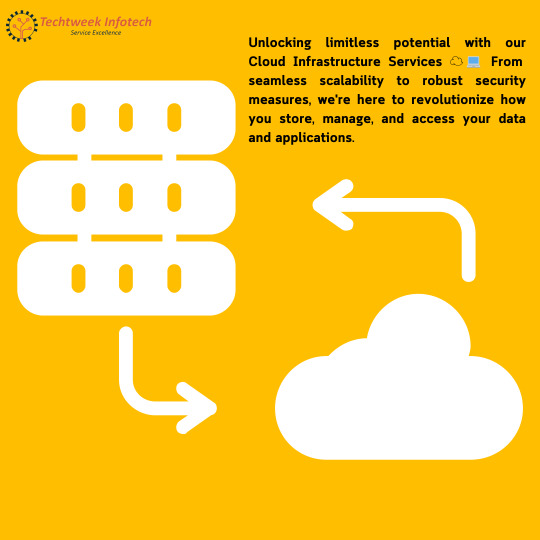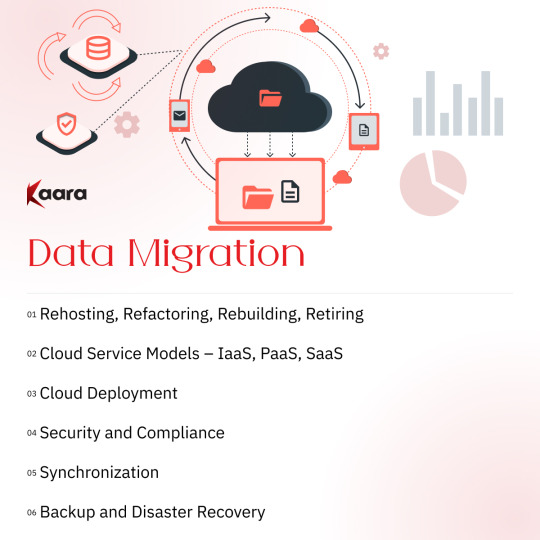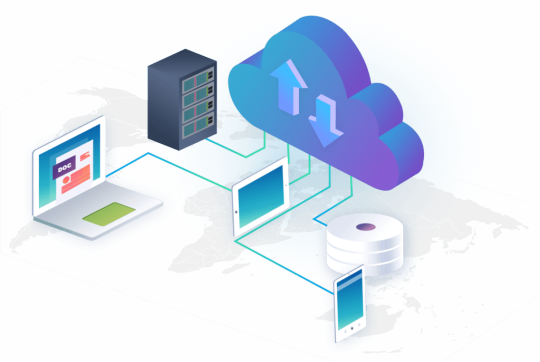#Technology cloudservice
Explore tagged Tumblr posts
Text

Growth is exciting, but only if your app can handle it! Cloud technology ensures your app scales effortlessly to meet increasing demand. 📈 Get ready for success! 🔗Learn more: https://greyspacecomputing.com/custom-mobile-application-development-services/ 📧 Visit: https://greyspacecomputing.com/portfolio
#GreySpaceComputing#CloudTech#AppScalability#cloudcomputing#cloud#technology#cybersecurity#aws#bigdata#devops#it#datacenter#azure#cloudstorage#linux#programming#software#tech#iot#cloudservices#coding#cloudsecurity#machinelearning#informationtechnology#datascience#business#python#security#microsoft#dataprotection
2 notes
·
View notes
Text

Whether you’re planning to host your own web site or update from a customary web hosting plan, cloud hosting gives lots of benefits.
Beginner-pleasant. A managed cloud hosting solution doesn’t require any technical understanding. The carrier issuer will keep up the cloud servers and your web site’s backend.
High availability. When a server fails, another one within the network will act as a backup, always protecting your web site online at all times.
Collaboration: Cloud hosting can facilitate collaboration among teams, as more than one users can access and edit files concurrently.
Traffic load balancing. Traffic-managing responsibilities are unfolded throughout cloud web servers to preserve high performance.
Scalability. Unlike traditional hosting services, web site proprietors don’t have to share their bandwidth, data storage, and computing power. The web host presents digital sources for each user, making it easier to scale their website.
Greater safety. Since cloud web hosting offerings use a handful of virtual machines, they're much less susceptible to hardware malfunctions. Moreover, the load balancing function can help prevent DDoS assaults.
Get a free demo and learn more about our cloud hosting solutions. https://bsoft.co.in/cloud-demo/
#cloud hosting#clouds#cloud services#technology#marketing#service#digital marketing#branding#delhi#cloudservice#city#ecommerce#cloud service provider
2 notes
·
View notes
Text
To anyone wondering if it's worth it to tear down fascist posters or whatever. I spent a few months last year engaged in silent battle with another student at my school who was putting anti trans stickers up everywhere. I had it down to a system where every night I would walk the five block radius they went up in, and tear down all the ones I could reach, and use a stick to put duct tape over the others. Like, within hours of the stickers going up, I would have already purged the whole zone. I knew the basic schedule of whoever put them up based on when and where the stickers appeared. I probably could have found them in person if I'd wanted to. And I told all my classmates and friends what the stickers looked like and got them to rip them down too. And after a few months of this, the stickers slowed, and then stopped forever.
My point is, a lot of this fashy or right wing stuff is one local weirdo. And if you pay attention, and do a little light organizing with your friends, you can basically make their efforts into a giant sisyphisean exercise in misery. You control your streets!
#tumblr#milestone#information technology#voipservices#akomtechnologies#gsmgateway#voipgateway#ippbx#cloudservices
179K notes
·
View notes
Text
What is the Difference Between DevOps and DevSecOps?

Introduction
Are you confused about the difference between DevOps and DevSecOps? We assure you that you’ll gain clarity after reading this blog. Let’s start!
In today’s fast-changing tech world, DevOps and DevSecOps are critical yet distinct. DevOps emphasizes collaboration between development and operations teams, leveraging automation to streamline processes. DevSecOps, a natural evolution of DevOps, integrates security practices throughout the software development lifecycle, ensuring secure, high-quality software delivery.
What is the Difference Between DevOps and DevSecOps?
DevOps:
DevOps is a cultural and technical approach that bridges the gap between development and operations teams to accelerate software delivery. It uses automation, collaboration, and continuous feedback to enhance productivity and ensure efficient, reliable software releases.
Key Features of DevOps:
Collaboration: Developers and operations teams unite to break down silos, fostering better communication and shared goals for smoother workflows.
Automation: By automating routine tasks such as testing, deployment, and infrastructure setup, teams can focus on innovation and productivity.
Continuous Integration and Deployment (CI/CD): Streamlines the process of merging code, testing it automatically, and deploying it seamlessly to production environments.
DevSecOps:
DevSecOps integrates security into every stage of the development pipeline, emphasizing proactive identification and resolution of vulnerabilities. It ensures that security is a shared responsibility among development, operations, and security teams.
Key Features of DevSecOps:
Shift-Left Security: Embeds security considerations from the earliest stages of development, reducing risks and costs.
Automation in Security: Utilizes tools to automate vulnerability scans, compliance checks, and security testing, accelerating secure deployments.
Continuous Security Monitoring: Leverages monitoring solutions to identify and mitigate security risks in real-time.
Tools Used in DevOps and DevSecOps
DevOps Tools:
Continuous Integration and Deployment: Jenkins: Automates the process of building, testing, and deploying software. GitLab CI/CD: Offers integrated pipelines for efficient code versioning and deployment.
Containerization: Docker: Provides lightweight containers to ensure consistency across environments. Kubernetes: Orchestrates containerized applications, managing scaling, deployment, and availability.
Version Control: Git: Tracks code changes and enables seamless collaboration among developers. GitHub: A platform for managing Git repositories and enabling open-source contributions.
Collaboration and Communication: Slack: Facilitates instant communication and file sharing among team members. Microsoft Teams: Supports collaboration through chat, video calls, and integrations with other tools.
DevSecOps Tools:
Security Automation: SonarQube: Performs static code analysis to detect bugs and security issues.
Vulnerability Scanning: OWASP Dependency-Check: Focuses on detecting known vulnerabilities in project dependencies. Nessus: Offers comprehensive vulnerability assessment for applications and networks.
Infrastructure as Code (IaC) Security: HashiCorp Terraform: Automates infrastructure provisioning while ensuring security best practices. Checkov: Validates IaC configurations to ensure compliance with security policies.
Objectives and Scope of DevOps and DevSecOps
Objectives of DevOps:
Accelerate Software Delivery: Reduce time-to-market by streamlining development, testing, and deployment processes.
Improve Quality: Achieve higher-quality software with automated testing and continuous monitoring.
Enhance Efficiency: Optimize workflows by eliminating manual tasks through automation.
Scope of DevOps:
Automation: Automate repetitive tasks to free up resources for innovation and problem-solving.
CI/CD Pipelines: Establish robust pipelines for continuous integration, testing, and deployment.
Cross-Functional Collaboration: Strengthen teamwork across development, testing, and operations functions.
Objectives of DevSecOps:
Integrate Security Proactively: Address security concerns early and throughout the development lifecycle.
Minimize Vulnerabilities: Employ advanced tools and practices to reduce risks in applications and infrastructure.
Promote Shared Security Ownership: Cultivate a security-first mindset across all teams involved in the development process.
Scope of DevSecOps:
Secure CI/CD Pipelines: Incorporate security checks into CI/CD pipelines to prevent vulnerabilities from reaching production.
Threat Detection and Mitigation: Employ tools to identify and neutralize threats in real-time.
Policy Compliance: Validate configurations and deployments against security standards.
Continuous Improvement: Use feedback loops and monitoring to strengthen security practices consistently.
How DevOps and DevSecOps are Related
DevOps as the Foundation: DevOps establishes a culture of automation and collaboration, which DevSecOps builds upon by adding a security focus.
Shared Tools and Practices: Many DevOps tools are extended with security features to align with DevSecOps goals.
Common Objectives: Both aim to deliver reliable, high-quality software efficiently while addressing key concerns such as performance (DevOps) and security (DevSecOps).
Benefits of Adopting DevOps and DevSecOps
Benefits of DevOps:
Faster Delivery: Achieve rapid deployment cycles without compromising quality.
Enhanced Collaboration: Improve team cohesion and shared understanding.
Operational Efficiency: Streamline processes to save time and resources.
Benefits of DevSecOps:
Stronger Security: Integrate robust security measures into development workflows.
Reduced Vulnerabilities: Address security gaps proactively.
Compliance Assurance: Simplify adherence to regulations and standards.
Future Trends in DevOps and DevSecOps
DevOps:
· AI and ML Integration
· Infrastructure as Code (IaC)
· Enhanced Observability
DevSecOps:
· Zero-Trust Security Models
· Continuous Everything (CX)
· Regulatory Compliance
Conclusion
In conclusion, DevOps and DevSecOps are integral to modern IT practices. DevOps accelerates delivery and fosters collaboration, while DevSecOps integrates security to ensure resilient, high-quality applications. Together, they empower organizations to innovate efficiently and securely, preparing for a future driven by automation, AI, and robust security measures. Organizations can benefit greatly from DevOps consulting services in Chennai to enhance their implementation strategies and achieve these goals effectively.
#DevOps#DevSecOps#TechInnovation#ContinuousIntegration#CyberSecurity#kryonknowledgeworks#technology#DevOpsServices#DevOpsConsulting#DevOpsSolutions#ManagedDevOps#DevOpsSupport#DevOpsForBusiness#CloudTransformation#ITOptimization#ScalableIT#AutomationSolutions#DigitalTransformation#BusinessInnovation#TechForBusiness#ITInfrastructure#CloudServices#EnterpriseSolutions#TechConsulting#ITStrategy#ITServices
0 notes
Text
The Power of Cloud Computing: Revolutionizing Business in the Digital Age

Cloud Computing has emerged as a transformative force in the business world, enabling companies to innovate, scale, and optimize their operations like never before. With its ability to provide on-demand access to computing resources—whether storage, processing power, or networking—this technology is helping businesses across industries streamline their operations and reduce costs. As more organizations move away from traditional IT infrastructures, the benefits are becoming increasingly clear.
In this article, we’ll explore how cloud technology is revolutionizing business, its key benefits, and why companies must embrace it to stay competitive in the digital age.
Here are the top 5 benefits of Cloud Computing:
1. What is Cloud Technology?
At its core, cloud computing refers to the delivery of computing services—including servers, storage, databases, networking, software, and analytics—over the internet (the “cloud”). Instead of owning and maintaining physical data centers or servers, businesses can rent access to technology services as needed. This flexibility allows them to scale their IT resources up or down according to demand, avoiding the costs and limitations of traditional infrastructure.
There are three main types of cloud services:
Infrastructure as a Service (IaaS): Provides virtualized computing resources over the internet, allowing businesses to rent servers and storage.
Platform as a Service (PaaS): Offers a platform for developers to build, test, and deploy applications without managing the underlying infrastructure.
Software as a Service (SaaS): Delivers software applications over the internet on a subscription basis, eliminating the need for businesses to install and maintain software locally.
These service models have made cloud computing accessible to businesses of all sizes, from startups to multinational corporations.
2. The Key Benefits
The rise of cloud technology has been driven by the many advantages it offers to businesses. These benefits have made it a cornerstone of modern IT strategy, enabling companies to innovate and compete in increasingly complex markets. Here are some of the primary benefits:
a. Cost Efficiency
One of the most compelling reasons businesses adopt cloud services is the significant cost savings. Traditional IT infrastructures require substantial investments in hardware, software, and personnel to maintain and upgrade systems. With cloud technology, businesses only pay for the resources they use, transforming fixed IT costs into variable ones.
Additionally, companies can avoid the costs associated with purchasing, maintaining, and upgrading physical infrastructure, as the provider handles these responsibilities. This allows businesses to focus their resources on innovation and growth rather than IT management.
b. Scalability and Flexibility
Cloud services offer unparalleled scalability. Businesses can easily adjust their computing resources to match demand without having to worry about over-provisioning or under-provisioning hardware. For instance, an e-commerce company may experience a surge in traffic during the holiday season, and cloud services allow it to scale up its resources to handle the increased load. Once the peak period ends, the company can scale back down, ensuring it only pays for what it needs.
This flexibility allows businesses to be more agile and responsive to market conditions, making it easier to launch new products or services without the constraints of physical infrastructure.
c. Disaster Recovery and Data Security
https://enterprisechronicles.com/wp-content/uploads/2024/09/10.1-Disaster-Recovery-and-Data-Security.jpg
Cloud Computing provides robust disaster recovery solutions that are typically out of reach for smaller businesses using traditional infrastructure. By storing data in geographically dispersed data centers, businesses can ensure that their information is safe from localized disasters such as fires or floods.
In addition, leading cloud providers invest heavily in security measures, including encryption, multi-factor authentication, and continuous monitoring. These safeguards often surpass what businesses could implement in-house, making the cloud a more secure option for managing sensitive data.
d. Enhanced Collaboration and Remote Work
The rise of remote work has made cloud solutions even more essential. With cloud-based tools and applications, teams can collaborate in real-time, regardless of their physical location. Documents can be shared, updated, and stored in the cloud, ensuring everyone has access to the latest versions. This technology makes it easier for employees to work from anywhere, increasing productivity and flexibility.
Tools such as cloud-based project management platforms, communication software, and file-sharing services allow seamless collaboration across time zones and departments, leading to improved workflows and decision-making.
3. Cloud Computing and Innovation

Beyond the operational advantages, cloud computing is a key enabler of innovation. By providing access to cutting-edge technologies such as artificial intelligence (AI), machine learning, and big data analytics, the cloud allows businesses to experiment with and implement advanced solutions at a fraction of the cost of traditional IT infrastructures.
For instance, companies can use cloud-based AI services to automate tasks, analyze large data sets, or personalize customer experiences without having to develop these capabilities in-house. This democratization of technology allows smaller businesses to compete with larger enterprises on a more level playing field.
Additionally, cloud solutions accelerate the time-to-market for new products and services. Development teams can quickly build, test, and deploy applications without waiting for hardware installations or infrastructure upgrades. This ability to rapidly innovate and iterate gives businesses a competitive edge in fast-moving industries.
4. Cloud Computing for Small Businesses
While large enterprises have long embraced cloud services, small businesses stand to benefit just as much, if not more. This technology levels the playing field by providing small businesses with access to the same technologies and capabilities that were once reserved for industry giants.
For small businesses, the cloud offers an affordable, scalable solution that eliminates the need for expensive IT investments. Instead of hiring a dedicated IT team, small businesses can leverage cloud services to manage everything from customer relationships to inventory control. The cloud also provides small businesses with the agility to respond quickly to market changes and customer needs, making it easier to grow and adapt in a competitive environment.
5. Future Trends in Cloud Computing

Edge Computing: By processing data closer to its source (the “edge”), businesses can reduce latency and improve performance, especially in applications like autonomous vehicles and smart cities.
Hybrid Cloud Solutions: Many companies are adopting hybrid models, combining private and public clouds to optimize security, performance, and cost-effectiveness.
Cloud-Native Development: Building applications specifically for cloud environments allows businesses to fully leverage the scalability and flexibility of cloud computing.
Conclusion
Cloud Computing is more than a technological shift—it’s a catalyst for business transformation. By offering cost savings, scalability, security, and enhanced collaboration, cloud services enable businesses to operate more efficiently and innovate faster. Whether you’re a small startup or a global enterprise, embracing cloud computing is crucial for staying competitive in today’s digital economy.
As businesses continue to adapt to new challenges and opportunities, cloud technology will remain a critical tool for driving growth, improving agility, and delivering exceptional value to customers. The future of business is in the cloud.
#cloud#technology#cybersecurity#aws#bigdata#datacenter#devops#cloudservices#tech#cloudstorage#it#azure#business#machinelearning#linux#itservices#software#cloudsecurity#data#programming#datascience
0 notes
Text
What is Cloud Computing?

Cloud computing delivers on-demand access to computing resources like servers, storage, and applications via the internet. It helps businesses reduce costs, improve scalability, and enhance flexibility in managing IT operations.
0 notes
Text
What Is Confidential Computing? How It Works In Google Cloud

What is Confidential Computing?
Cloud computing technology that can isolate data within a secured central processing unit (CPU) while it is being processed is known as Confidential Computing. The data the CPU processes and the techniques it employs to do so are both part of its environment. Only those with specific authorization may access this in order to provide programming code for privileged access. Otherwise, the CPU’s resources are undetectable and undiscovered by any software or anybody, even the cloud provider.
Businesses using public and hybrid cloud services need data security solutions more than ever. Confidential computing aims to reassure organizations about data security. Before customers can feel at ease transferring information to a cloud environment, they must be certain that data is secure and kept private.
When it comes to delicate or business-critical tasks, this assurance is equally crucial. Moving to the cloud requires many businesses to put their faith in an unknown technology. This might lead to challenging issues, especially if their digital assets are accessible to unidentified parties, like the cloud provider. The goal of confidential computing is to ease these worries.
Cloud computing is not a novel use of data encryption. Cloud service companies have been encrypting data while it is in storage or in a database for years. Additionally, they have encrypted data traveling across a network. These have been essential components of cloud security for a long time. However, confidential computing encrypts data in use as well as in transit and at rest.
How Confidential Computing Works
Applications connect to a computer’s memory in order to process data. An program must first decrypt data in memory before it can process it. The data is accessible since it is momentarily unencrypted. Before, during, and immediately after processing, it is accessible without encryption. This exposes it to dangers such as memory dump attacks, which, in the case of an irretrievable mistake, entail capturing and utilizing random access memory (RAM) placed on a storage device.
As part of the assault, the attacker causes this mistake, which makes the data vulnerable. Additionally, data is vulnerable to root user breaches, which happen when an unauthorized individual obtains administrator capabilities and may access data before to, during, and after processing.
By using a hardware-based architecture known as a trusted execution environment (TEE), confidential computing resolves this problem. Within a CPU, this is a secure coprocessor. TEEs have integrated encryption keys. The coprocessor employs built-in attestation techniques to ensure that the TEEs are only accessible by the application code that has been allowed for them. The TEE will reject the attempt at access and stop the calculation if malware or unauthorized code attacks the system while it is attempting to access the encryption keys.
This keeps private information safe while it’s in memory. The data is made available for processing after the application instructs the TEE to decrypt it. Everything and everyone else cannot see the data while it is encrypted and being processed by the computer. This covers the operating system, virtual machines, hypervisors, other computer resources, and the cloud provider.
Why is Confidential Computing a Breakthrough Technology?
Because it addresses a requirement specific to cloud computing and one that is becoming more and more popular trustless security in a cloud computing environment confidential computing is a game-changing technology. For private users who want to ensure that their data, software, and computational tasks are not left vulnerable to cloud providers or other individuals they do not like to interact with, cloud computing is probably going to remain the preferred option.
Currently, a bad actor may access important processes, data, and software if they are able to effectively get or fake the credentials of a cloud provider. The most direct method of reaching the core infrastructure in a conventional on-premises computer system is to carry out an in-person assault, unless the infrastructure is unprotected at its perimeter. Therefore, users feel secure knowing that the internal data center is locked.
It doesn’t matter whether their confidence is warranted or advisable. Trust is still fostered by the sensation of control over the computer environment. With cloud computing, when the digital assets are located hundreds of kilometers away, the same degree of confidence may be established. Without having to worry about data protection or other regulatory concerns, this might open the door for businesses to embrace the newest cloud technology.
Businesses that must adhere to compliance rules could feel much more at ease moving their workloads to the cloud. A company may face severe fines or perhaps legal action for even an unintentional violation. Services like Google Cloud and Kubernetes can only provide people who are concerned about cloud security so much trust without confidential computing. Sensitive information is protected from unwanted access by programs and processes on the computer as well as by individuals with to solutions like Microsoft Azure secret cloud computing.
Read more on Govindhtech.com
#ConfidentialComputing#Cloudcomputing#hybridcloud#CPU#Cloudservice#RAM#virtualmachines#GoogleCloud#News#Technews#Technology#technologynews#Technologytrends#govindhtech
0 notes
Text
With notifyIN: Unlock the Power of WhatsApp And Oracle NetSuite Integration

Businesses are constantly seeking innovative ways to streamline their operations and improve communication with customers, vendors, and partners. One of the most transformative solutions in this regard is the integration of pre-built apps that offer no-coding setups, making them accessible and easy to implement for businesses of all sizes. Among these solutions, notifyIN stands out as a one-of-a-kind, ready-to-use application that has been specifically designed to enhance communication within the Oracle NetSuite ecosystem through instant notifications and messaging via WhatsApp.
The Power of No-Coding Pre-Built Apps
The beauty of no-coding pre-built apps lies in their simplicity and efficiency. Unlike traditional software solutions that often require extensive development and customization, pre-built apps come ready to deploy, significantly reducing the time and cost associated with implementation. These apps are designed to meet specific business needs, and their no-coding nature ensures that even users with minimal technical expertise can configure and use them effectively.
notifyIN is a prime example of this new wave of digital tools. As a pre-built app designed for Oracle NetSuite and WhatsApp Integration, it eliminates the need for complex coding or lengthy setup processes. Instead, users can quickly integrate the app with their existing NetSuite system and begin using it almost immediately. This no-coding approach not only saves valuable time but also empowers businesses to take full control of their communication processes without relying on external developers or IT support.
Why notifyIN is a Game-Changer
In a market flooded with various communication tools, notifyIN distinguishes itself through its unique features and seamless integration with Oracle NetSuite ERP. With over 2 billion users worldwide, WhatsApp has become an indispensable platform for communication. notifyIN leverages this ubiquity by enabling businesses to send instant notifications and messages directly through WhatsApp, all within the familiar environment of NetSuite.
Whether it’s sending sales order confirmations, shipment notifications, or customer payment confirmations, notifyIN ensures that critical information reaches the right people at the right time. The app supports a wide range of transaction notifications, including purchase orders, vendor bill confirmations, and vendor payments. This comprehensive coverage makes notifyIN an invaluable tool for businesses that rely on timely communication to maintain smooth operations and high levels of customer satisfaction.
Key Features and Functionality
Wizard-Based Setup: Guides users through configuration with ease, simplifying integration and customization.
Transaction-Level Notifications: Allows users to enable or disable notifications for specific transactions or entities.
Personalized Communication: Supports sending notifications for specific transactions or entities to reduce information overload.
Wide Range of Notifications: Includes sales orders, shipment notifications, customer payment confirmations, purchase orders, vendor bill confirmations, and vendor payments.
Future-Proofing with Upcoming Features
As businesses grow and evolve, so too must their communication tools. notifyIN is committed to staying ahead of the curve by continuously enhancing its functionality with new features. Upcoming updates include:
Payment Overdue Reminders: Automated alerts for overdue payments.
Transaction Approvals: Streamlined approval processes.
Customized Message Templates: Tailored messaging options.
Marketing Campaigns: Tools for running marketing campaigns.
AI Integration: Leveraging AI for advanced features like predictive notifications, sentiment analysis, and automated responses.
Live Chat: Real-time chat with customers.
Case Management: Tools for managing customer service cases.
Group Messaging: Ability to send messages to multiple recipients simultaneously.
These additions will further expand the capabilities of notifyIN, making it an even more versatile and powerful tool for businesses of all sizes.
Conclusion
notifyIN offers a unique solution for Oracle NetSuite users, combining quick, no-coding setup with seamless integration. It enhances communication and streamlines operations, making it an essential tool for staying connected with customers, vendors, and partners. Whether aiming to improve customer satisfaction or maintain a competitive edge, notifyIN is the ideal choice.
Contact Integs Cloud Today!
Elevate your communication and streamline operations with notifyIN. Contact Integs Cloud to learn how this game-changing tool can transform your Oracle NetSuite experience.
Learn More in This Video
youtube
#IntegsCloud#OracleNetSuite#WhatsApp#notifyIN#Integration#PrebuiltApp#NetSuiteWhatsAppIntegration#Communication#Simplified#Efficiency#Streamlining#CustomerEngagement#iPaaS#Automation#Tech#Technology#ERP#Software#CloudServices#BusinessSolutions#CustomerExperience#DigitalTransformation#Zoho#netsuite#celigo#IntegrationExperts#Youtube
0 notes
Text
Maximize Efficiency with Expert Docker Consulting Services

In the fast-paced world of software development, containerization has become a game-changer, offering unprecedented flexibility, scalability, and consistency. Docker, the leading containerization platform, allows developers to package applications and their dependencies into standardized units for seamless development, testing, and deployment across different environments. However, to fully harness Docker's potential, businesses often require specialized expertise. This is where Docker consulting services can provide invaluable support, helping organizations optimize their container strategies and accelerate their journey towards a more efficient DevOps ecosystem.
What is Docker?
Docker is an open-source platform designed to automate the deployment of applications inside lightweight, portable containers. These containers encapsulate everything needed to run an application—code, runtime, libraries, and settings—ensuring that the software behaves the same regardless of where it is executed. This eliminates the classic “it works on my machine” problem and streamlines the development workflow, making Docker an essential tool for modern software development.
Why Invest in Docker Consulting Services?
Customized Containerization Strategies Implementing Docker isn’t just about spinning up containers; it requires a strategic approach to ensure that your architecture is optimized for performance, security, and scalability. Docker consulting services provide tailored strategies that align with your business objectives, whether it's modernizing legacy applications, migrating to microservices, or streamlining your CI/CD pipelines.
Expert Guidance and Best Practices Docker offers powerful capabilities, but without proper guidance, organizations can face challenges like security vulnerabilities, inefficient resource utilization, and complex network configurations. Expert consultants bring a wealth of knowledge in Docker best practices, from container orchestration with Kubernetes to securing Docker images and managing container lifecycles, ensuring that your setup is robust and reliable.
Seamless Integration with DevOps Pipelines Docker plays a critical role in modern DevOps, enabling continuous integration and continuous deployment (CI/CD) processes. Consulting services help integrate Docker into your existing DevOps workflows, automating everything from code testing to application deployment. This reduces time to market and increases the efficiency of your development teams.
Cost Optimization While Docker can lead to significant cost savings, especially in terms of infrastructure, improper management can lead to resource sprawl and hidden costs. Consultants help optimize your Docker setup by right-sizing containers, implementing automated scaling policies, and leveraging Docker’s resource management tools to keep your operations cost-effective.
Training and Skill Development A key component of successful Docker adoption is having a team that understands how to use it effectively. Docker consulting services often include training and upskilling for your in-house developers and operations teams, equipping them with the necessary skills to manage and optimize your containerized environments.
Choosing the Right Docker Consulting Partner
Choosing the right consulting partner can make a significant difference in the success of your Docker initiatives. Look for a partner with extensive experience in Docker and container orchestration, as well as a deep understanding of your industry’s specific challenges. At Feathersoft Inc Solution, we specialize in providing Docker consulting services that are tailored to your unique needs. Our team of experts works closely with your organization to design, implement, and optimize your container strategy, helping you achieve your goals faster and more efficiently.
Conclusion
Docker consulting services can be the catalyst your business needs to fully realize the benefits of containerization. By leveraging expert guidance, tailored solutions, and ongoing support, you can transform your software development and deployment processes, achieving greater efficiency, scalability, and cost savings. Whether you’re new to Docker or looking to enhance your existing setup, the right consulting partner can help you navigate the complexities of containerization and unlock its full potential.
#Docker#DevOps#Containerization#DockerConsulting#CloudComputing#Kubernetes#Microservices#SoftwareDevelopment#CI/CD#ITConsulting#CloudNative#Technology#CloudServices#DigitalTransformation
0 notes
Text

Choosing the Right Cloud Infrastructure Services Provider In Mohali
Choosing the right cloud infrastructure services provider in Mohali can significantly impact the success and efficiency of your business operations. With many options available, it’s crucial to consider several key factors to make an informed decision.
Firstly, consider the scalability offered by the provider. Ensure they can accommodate your business’s growth without compromising performance. Next, prioritize security measures such as data encryption, regular audits, and compliance certifications to safeguard sensitive information.
Reliability is another critical aspect. Choose a provider with a proven track record of uptime and minimal downtime to ensure uninterrupted access to your cloud services. Additionally, evaluate the provider’s performance metrics and Service Level Agreements (SLAs) to guarantee optimal performance levels.
Cost-effectiveness is also vital. Compare pricing structures and consider factors like storage, bandwidth, and additional services included in the package.
Ultimately, by carefully assessing these factors and aligning them with your business needs, you can choose the right cloud infrastructure services provider in Mohali for seamless operations and future growth.
#cloudservices#scalability#security#efficiency#innovation#cloudcomputing#datamanagement#digitaltransformation#technology#businesssolutions#cloudstorage#cloudsecurity#cloudnetworking#cloudsolutions#cloudmigration
0 notes
Text

Naresh i Technologies 🔴 Classroom & Online Training at KPHB Branch 🔴 ✍️Enroll Now: https://bit.ly/4a03SJ0 👉Attend a Free Demo On AWS by Mr.Phani Krishna 📅Demo On: 27th March @ 07:30 AM (IST) 👉Hands-on-Learning - Lab sessions 👉Self-paced Learning Materials 👉Interview Preparation Skills
#aws#cloud#cloudcomputing#azure#devops#technology#python#amazonwebservices#linux#amazon#programming#awscloud#coding#googlecloud#developer#kubernetes#onlinetraining#awscertification#cloudservices#microsoftazure#nareshit#kphb
1 note
·
View note
Text

Experience the perfect blend of speed, reliability, and scalability with cloud technology. ⚡ Elevate your app’s performance and keep users coming back for more! 🔗Learn more: https://greyspacecomputing.com/custom-mobile-application-development-services/ 📧 Visit: https://greyspacecomputing.com/portfolio
#GreySpaceComputing#CloudTech#AppScalability#cloudcomputing#cloud#technology#cybersecurity#aws#bigdata#devops#it#datacenter#azure#cloudstorage#linux#programming#software#tech#iot#cloudservices#coding#cloudsecurity#machinelearning#informationtechnology#datascience#business#python#security#microsoft#dataprotection
1 note
·
View note
Text

Elevate your business to new heights by harnessing the power of scalable resources, seamless collaboration, and data accessibility. Embrace the future of technology with Cloud Computing solutions that streamline operations and drive innovation. Reach Us: 8870275880
Cloud Computing
#CloudComputing#Innovation#DigitalTransformation#technology#cybersecurity#aws#bigdata#devops#it#datacenter#azure#cloudstorage#linux#programming#software#tech#iot#cloudservices#coding#cloudsecurity#machinelearning#informationtechnology#datascience#business#python#security#microsoft#dataprotection#networksecurity#data
0 notes
Text

Discover a new standard in Data Migration with #Kaara! Experience the excellence in Cloud Management.
Reach our experts by emailing us at [email protected]
Know More:- www.kaaratech.com
0 notes
Text

Cloud computing has redefined how businesses are staying ahead of the competition by using the latest innovations while keeping the costs low. It is one of the ideas that has led to a huge paradigm shift in business processes across various industries but the industry that has benefitted the most from it is the very industry that created it – IT – Information Technology industry.
#cloudcomputing#cloud#technology#devops#it#azure#cloudstorage#programming#software#tech#iot#cloudservices#coding#cloudsecurity#machinelearning#informationtechnology#datascience#business#python#security#microsoft#dataprotection#networksecurity#data#artificialintelligence
1 note
·
View note
Text
Ensuring Data Protection and Business Continuity

In today's digital era, managing and securing data backups is essential for organizations of all sizes. Cloud backups have emerged as a reliable solution for storing and protecting critical data. However, effective management of cloud backups is equally important to ensure data availability, integrity, and efficient recovery. In this blog post, we will explore some best practices for managing cloud backups, helping you safeguard your data and maintain business continuity.
Define a Backup Strategy: Start by establishing a comprehensive backup strategy that aligns with your organization's needs. Determine the frequency of backups, retention periods, and recovery objectives. Consider the criticality of data and prioritize accordingly. A well-defined backup strategy serves as a foundation for efficient cloud backup management.
Choose the Right Cloud Backup Provider: Selecting a reputable and reliable cloud backup provider is crucial. Evaluate factors such as data security measures, encryption protocols, data redundancy, service-level agreements (SLAs), and scalability. Look for providers with a proven track record in the industry and positive customer reviews.
Conduct Regular Data Audits: Perform periodic audits of your data backups to ensure that all critical data is being appropriately protected. Regularly review backup logs, data consistency, and any error or warning messages. These audits help identify any gaps in backup processes and allow for timely adjustments.
Implement Data Encryption: Data encryption is a fundamental aspect of cloud backup security. Ensure that your backup solution supports encryption both in transit and at rest. Encrypt sensitive data before it leaves your organization's environment and select encryption algorithms and key management practices that meet your security requirements.
Test Backup Restorations: Don't wait for a disaster to strike before testing your backup restoration process. Periodically perform restoration tests to validate the integrity and recoverability of your cloud backups. This practice helps identify any issues or potential limitations in the recovery process, enabling you to fine-tune your backup strategy.
Use Incremental and Differential Backups: To optimize storage utilization and reduce backup duration, leverage incremental and differential backups. Instead of backing up entire datasets every time, these methods only capture and store changes since the last backup. This approach minimizes backup windows and reduces bandwidth consumption.
Implement a Backup Schedule: Establish a consistent backup schedule that ensures regular and timely backups. Automate the backup process whenever possible to eliminate the risk of human error and ensure data is protected according to the defined strategy. Regularly review and update the schedule to accommodate changing business needs.
Monitor Backup Health and Performance: Continuously monitor the health and performance of your cloud backups. Utilize monitoring tools to track backup success rates, storage utilization, and overall system performance. Proactively address any anomalies or failures to maintain data availability and reliability.
Secure Access and Authentication: Implement robust access controls and authentication mechanisms to prevent unauthorized access to your cloud backups. Utilize strong passwords, multi-factor authentication (MFA), and role-based access controls (RBAC) to limit access to authorized personnel only. Regularly review and update user permissions.
Maintain Off-Site Backups: Diversify your backup strategy by maintaining off-site backups. Storing copies of critical data in geographically separate locations provides an additional layer of protection against natural disasters, regional outages, or other unforeseen events. Consider utilizing a different cloud provider or physical storage options for off-site backups.
Conclusion: Effectively managing cloud backups is paramount for ensuring data protection, business continuity, and peace of mind. By following the best practices outlined in this blog post, you can establish a robust cloud backup management framework. Remember to regularly assess and update your backup strategy to align with evolving business needs and advancements in cloud backup technologies. With proper management, your organization can safeguard its data assets and recover swiftly from any potential data loss scenarios.
#cloudbackup#backup#cloudstorage#cloud#databackup#datastorage#computersolutions#dataprotection#serversolutions#networkcabling#data#technology#microsoft#cloudcomputing#datasecurity#zerodowntime#cloudservices#the#serverupgrades#privatecloud#itservices#serverroom#deployments#datacenter#manageditservices#migrations#storage#backupdata#solutions#servermaintenance
0 notes